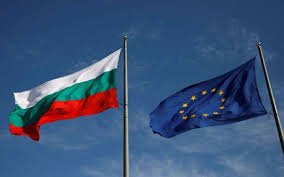Bulgaria is set to switch its currency to the Euro (€) on January 1, 2026, from the Bulgarian Lev, making it the 21st country in the eurozone.
The transition is expected to lead to greater economic stability, smoother transactions and stronger integration across Europe for Bulgarians and non-Bulgarians living in the country.
Current State of the Bulgarian Economy
Bulgaria’s historic switch to the Euro after using the Bulgarian Lev since the country’s formation comes at a time the country is making a slow but steady economic progress.
The country’s real GDP grew by 3.1% year-on-year in the first quarter of 2025 but is expected to ease to between 2.0% and 2.6% for the full year driven mainly by domestic consumption rather than exports, which are weakening due to softer external demand.
The country’s unemployment rate has fallen to around 3.3% so far in 2025, well below the EU average, but Inflation is expected to average 3.6% in 2025 before easing toward 2% in 2026, reflecting pressures from food and administered prices.
The country has a government deficit projected at 2.8% of GDP in 2025 and debt levels among the lowest in the EU, rising modestly from 25% to 27% of GDP over the next year. These conditions have allowed the country to meet all Maastricht convergence criteria, paving the way for euro adoption on January 1, 2026.
What The country Stands to Gain From Euro Adoption
Bulgaria’s Eurozone entry is expected to deepen financial integration, lower transaction costs, and attract more investment, though it also carries risks of price adjustments and the loss of monetary policy independence.
Its aging and declining population, persistent poverty and inequality affecting nearly a third of the population, and governance concerns that weigh on investor confidence however pose a major challenge to the country.
How Bulgaria’s Move to The Eurozone Affects Nigerian Investors in Bulgaria
At present, dealing in the Bulgarian lev (which is pegged to the euro) involves conversion costs and exchange-rate risks when moving money in and out of the EU.
Once Bulgaria adopts the euro, the process gets smoothened out with Nigerian businesses operating in Bulgaria or trading with Bulgarian partners benefiting from greater predictability in contracts, invoices, and returns, particularly for those denominated in euros.
Currently areas open for business investments in Bulgaria include: Real Estate particularly in Sofia, Plovdiv, Varna, and Black Sea resorts; Tourism and Hospitality, Agriculture, Renewable energy, ICT as well as Logistics due to Bulgaria being a bridge between Europe, the Middle East, and Asia.


























